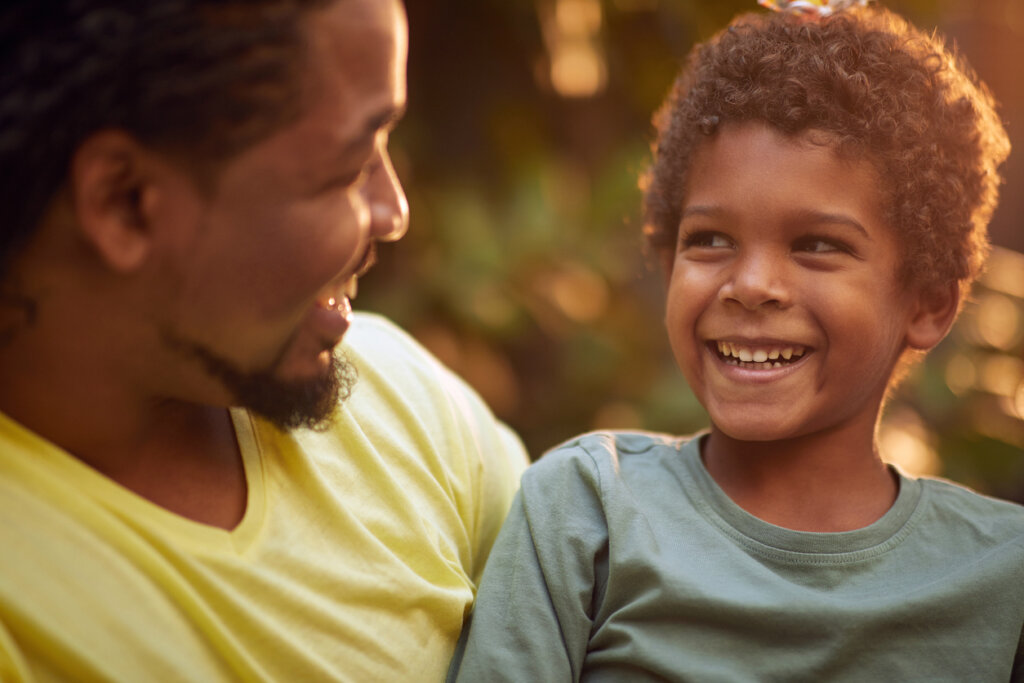Genetic Memory: The Surprising Legacy of Our Ancestors


Written and verified by the psychologist Valeria Sabater
In 2013, researchers conducted a curious experiment with mice. A group of them was trained to develop an aversion to one type of smell. Later, when these animals had offspring, it was discovered that they felt the same distress toward the same odor. In other words, they’d inherited their parents’ fear but without having had the same experience.
We understand genetic memory as a phenomenon in which an individual inherits certain memories or abilities without having been previously exposed to the experiences concerned. We know that it occurs in the animal kingdom. It’s as if certain traumatic experiences are imprinted in the genetic code of a species, in order to facilitate the survival of the next generation.
However, does the same thing happen in humans? Do we also inherit the fears of our parents or grandparents? Is the life of our ancestors a kind of prologue that configures our own history? As a matter of fact, this issue is still controversial for many scientists. However, we can now clarify some data.
Our genome has a system that can store the impact of certain experiences of our ancestors. This can either help or hinder us when facing certain situations.

Genetic memory
It’s common to make certain mistakes when talking about genetic memory. Firstly, as humans, we can’t store memories that our ancestors lived through. For example, you can’t recall what your grandmother experienced in her childhood or what happened to your father when he turned forty.
Nevertheless, what can be transmitted from one generation to another is the emotional imprint of a traumatic experience sustained over time. Earlier on, we mentioned the mouse experiment. It was conducted by Emory University in Atlanta (USA). It found that certain adverse experiences in mice altered the neuronal structure in their offspring, to the point of inheriting the same fear.
Something similar happens in humans. We know that situations of anguish and the chronic stress of parents leave an imprint on the genetic material of new generations. For instance, a paper published in Biological Psychiatry claims that a father’s stress can genetically affect his children, to the point of making them more vulnerable to adversity.
As living beings, we all carry with us a genetic imprint of what our relatives have experienced. Thus, certain facts can vary the genes and with them, the phenotype of an organism. This is our physiology and behavior.
Positive and negative experiences sustained over time trace different gene expression profiles in various brain areas associated with long-term memory. How this emotional imprint is genetically inherited by another generation is a process that we don’t yet understand.
Epigenetics and the case of Holocaust survivors
When it comes to understanding genetic memory, it’s essential to talk about epigenetics. This concept refers to how an individual’s experiences can change the way their DNA is expressed, and how that variation can be passed on to the next generation.
In other words, a variation in the genes is produced without altering the DNA code itself. Some chemical labels are changed and that can make our adaptation to the environment better or worse. A striking example of epigenetic transmission is intergenerational trauma.
To illustrate this phenomenon, we’re going to examine the impact of World War II. An investigation conducted in Israel by Dr. Natan Kellermann talks about how the experiences of the Holocaust survivors didn’t remain only in their minds and bodies. Their suffering transcended. And it did so in subsequent generations.
In fact, while some descendants showed greater vulnerability to stress, others were more resilient. Each person faced those extreme experiences in a different way. In effect, their attitudes and coping mechanisms were inherited by their children.
Psychobiologist, Bea Van Den Bergh states that suffering from high levels of stress and anxiety for a specific time can ‘reprogram’ certain biological systems in fetuses, predisposing them to mental disorders.

What our ancestors bequeathed to us
Language can be considered, in part, as a partial feature of genetic memory. Indeed, we’re all able to communicate thanks to the evolutionary and physiological development of our ancestors. But not only that. Although it’s known that there’s no genetic predisposition for a child to speak the language of their parents, there’s one really interesting factor.
Some studies demonstrate that languages such as Mandarin and Vietnamese (in which the tone is decisive) show a variation in the gene to favor its correct pronunciation. Consequently, a baby born in Vietnam would find it easier to learn the tonality required for that language than one born in Buenos Aires.
In short, our ancestors bequeathed us many aspects, some of which are amazing and extraordinary while others are less so. Given this evidence, we’d like to add one nuance. It’s the fact that the biological predisposes us while the environment determines us. This means that, while we might inherit parental stress, our predisposition to it isn’t 100 percent. There’s simply a risk, not a cause and effect.
However, living in a family environment marked by constant abuse and mistreatment does have a direct effect on the human being. Indeed, few emerge unscathed from childhood trauma, although it doesn’t mean that they have to suffer forever. There are always resources, strategies, and support available to treat the wounds of yesterday.
In fact, it’s imperative that these wounds must be healed so they’re not transmitted to future generations.
All cited sources were thoroughly reviewed by our team to ensure their quality, reliability, currency, and validity. The bibliography of this article was considered reliable and of academic or scientific accuracy.
- David M. Dietz, Quincey LaPlant, Emily L. Watts, Georgia E. Hodes, Scott J. Russo, Jian Feng, Ronald S. Oosting, Vincent Vialou, Eric J. Nestler. Transmisión paterna de patologías inducidas por estrés . Psiquiatría Biológica , 2011; 70 (5): 408 DOI: 10.1016/j.biopsych.2011.05.005
- Dias BG, Ressler KJ. Parental olfactory experience influences behavior and neural structure in subsequent generations. Nat Neurosci. 2014 Jan;17(1):89-96. doi: 10.1038/nn.3594. Epub 2013 Dec 1. PMID: 24292232; PMCID: PMC3923835.
- Kellermann NP. Epigenetic transmission of Holocaust trauma: can nightmares be inherited? Isr J Psychiatry Relat Sci. 2013;50(1):33-9. PMID: 24029109.
This text is provided for informational purposes only and does not replace consultation with a professional. If in doubt, consult your specialist.








